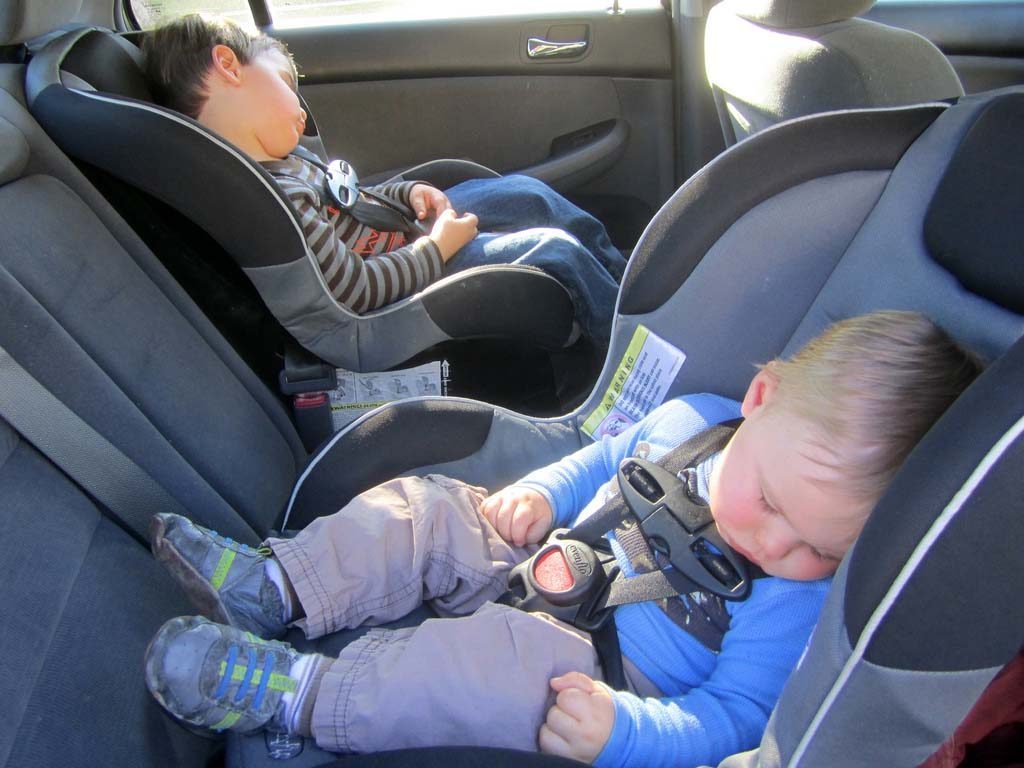
Police in Dubai have asked residents to photograph and report motorists who seat their children in their laps or with passengers in the front seat.
According to the National, the crackdown is part of a recently-introduced Child Protection Law, which came into effect in June this year.
The move is sure to strike a chord with residents of Qatar, as it is also illegal for children under 10 years old to be in the front seat of vehicles.

But like in Dubai, the sight of kids sitting on the laps of parents or caretakers in a moving vehicle is not uncommon.
Speaking to the National, Khaled Al Kamda, director general of Dubai’s Community Development Authority, said:
“It is part of our moral duty to ensure a child is protected and if we see behavior endangering a child it should be reported.”
Such photographs should be sent directly to authorities, he added, although warned motorists not to take photographs while they are driving.
Qatar’s road safety
While Qatar has yet to introduce a similar method of tackling road safety, authorities here have encourage residents to photograph some erring motorists.
In 2014, the MOI reminded residents could use its Metrash 2 mobile phone app to upload images and information about drivers breaking the law.

At the time, the ministry focused on violations such as blocking a yellow box junction or cutting into intersections from the right turn-lane.
Still, some said they felt uncomfortable of the repercussions of “naming and shaming” fellow residents, especially locals.
Focus on children
Qatar has launched several public awareness campaigns to boost its afety record in recent years.
This has helped decrease road deaths recently, though the number of injures continue to rise, according to MOI figures.
One way to reduce this figure is to get more people, especially children, to buckle up.
Seat belt campaign at Traffic Week 2015
More than half of all deaths of children under the age of four years old in Qatar is due to traffic accidents, according to health officials.
“In almost all the cases, the victims are those traveling on the front seat, without wearing a seat belt,” Rafael Consunji, a consultant at Hamad Medcial Corp’s (HMC) Trauma Department, previously said.
This prompted experts from Hamad Medical Corp. to undertake a study in 2014 looking at how to improve car seat use in the country.
It followed an initiative the previous year to hand out 7,000 baby seats to the parents of newborns at HMC’s Women’s Hospital.
However, long-term use of the seats has reportedly been patchy.
Safety conference
Improving Qatar’s road safety to reduce fatalities and accidents will be among the issues discussed in a wide-ranging conference on transport safety in Doha next month.
The Qatar Transport Safety Forum kicks off on Oct. 17. It feature experts from organizations working on rail, road and other projects across Qatar to discuss how using the latest engineering, technology and education can improve standards in the country.

The forum’s website states:
“The United Nations Sustainable Development Goals have stipulated that road deaths need to be reduced by 50% by 2020 and Qatar has moved quickly to achieve this ambitious target.”
Some of the topics set to be discussed include
- Deterring drivers from dangerous driving by imposing tougher fines;
- Enforcing penalties by developing automated alert and payment mechanisms; and
- Affecting driver behavior by increasing the visibility of traffic police on roads.
Thoughts?








